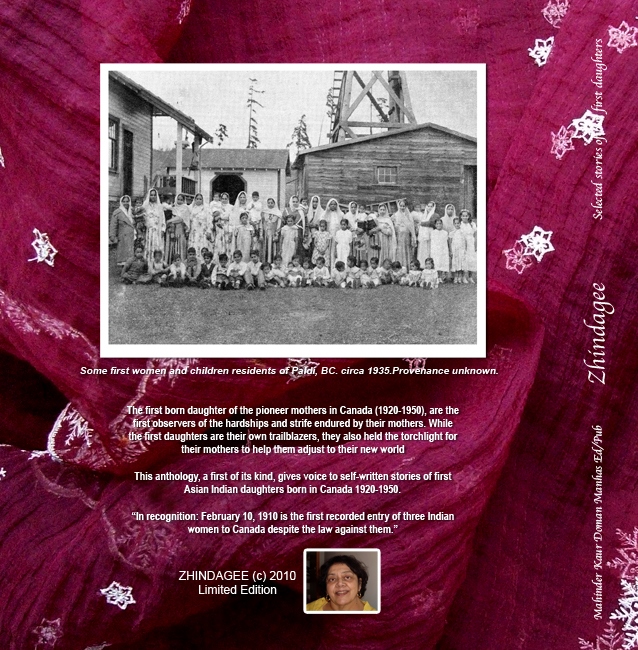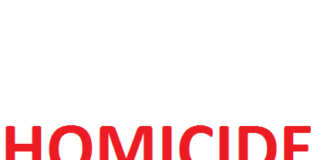(This article appeared in the print edition of The Indo-Canadian VOICE on Saturday, March 5)
MAHINDER Kaur Doman (1940-2022) passed away peacefully on February 24.
According to her obituary published in Victoria Times Colonist, she was “predeceased by her father Doman Singh, her mother Purab Kaur, her sister Herbans Kaur (Bonso), her brothers Harbanse (Herb), Gurdial (Gordy) and Didar (Ted).”
It goes on to state: “Born and raised on Vancouver Island, Minder’s formal education took place in Canada and the USA and included nursing, geography/ psychology, management, computer programming and business analysis. The youngest of five siblings, including three incredibly driven brothers, Minder had a gregarious personality and insatiable appetite for knowledge. Determined to chart her own path, she could hold her own when speaking to any of her diverse group of friends, including Canada’s first female PM, the Rt. Hon. Kim Campbell. Her work took her many places in Canada, and she always spoke of the transformational five years that she lived and worked on three First Nation reserves in BC and the Yukon Territory, and how it enriched her life.”
THIS writer had interviewed Mahinder Doman (she used the full name “Mahinder Kaur Doman Manhas”) in 2010 as she prepared to launch her book “ZHINDAGEE – Selected stories of our first daughters.” These were “the firstborn daughters of the pioneer mothers in Canada (1920-1950).”
Manhas told me: “I’ve been collecting information on Indian women since the 70s, since I finished university, because my mother was a pioneer and I was very intrigued by her life back in India, how did she end up marrying my father … Like what happened and how was it that she landed in Canada, and also other immigrants who came around the same time. My mother came in January of 1930.”
She told me that she got the women to write their own stories and then she edited them.
She said: “There is just so much for anyone who’s interested in our history; so much for people to explore” as she told me that according to her research, 2010 was the centenary of the arrival of first Indian women.

MANHAS told me that she got the women to write their own stories and then she edited them.
She said: “There is just so much for anyone who’s interested in our history; so much for people to explore!” as she told me that according to her research, 2010 was the centenary of the arrival of first Indian women.
In the book, she writes: “… Around 1910 many Indian men had decided to settle permanently in British Columbia so they began to discuss the coming of the women and children. …
“A great deal of conflict with the larger society arose around this issue, which too almost fifteen years to resolve. White Canadian society took the position that two wrongs did not make a right: since the admission of Indian males had been a wrong, the admission of women could not right the situation at all. Clearly, it was hoped that the men who wanted families would return to the Punjab or else remain in Canada without fathering successive generations…
“Yet a few Indian women came.
“… By 1910, three of the Sikh elite had wives present with them. Nothing is written about the women in their own right. Instead, they are noted in passing: “Mrs. Sundar Singh and Mrs. Teja Singh came to Canada with their husbands. Mrs. Uday Ram Joshi arrived on February 10, 1910, and admitted having fulfilled the requirements.”
“ … After years of facing contrived rules and policies fabricated to justify the exclusion of women, they were later allowed to enter Canada. At the Imperial War Conference, 1917-1919, the Indian government secured an agreement which permitted Asian Indian women to enter Canada after 1920.”
Manhas told me: “But nothing’s been written about these ladies on their own; they’re referenced by their husbands’ names. … We don’t even know what their first names are.”
HERE are some facts about Manhas’s background as stated in her book:
“My work included Consultancies to Federal and Provincial governments on the status of immigrant / non-immigrant women, Employment Equity and Business. I also have participated at international forums for business development by women of Third World countries. An earlier career at Malaspina College included the development of basic education skills for Adults without grade 12, and learned ESL module development by ESL pioneer, Dr. David Harrison PhD. Some volunteer work included a naive five-year foray into radio. The technical skills needed for “Sounds of India” were a steep learning curve! However, it prepared me for “PERSPECTIVES”, a live public affairs program where I learned some intricacies of BC politics from expert, Dr. Norman Ruff PhD, a highly respected professor (now retired) of Political Science at UVIC. In 1987, at the Commonwealth Heads of Government Meetings, Vancouver, BC, a memorable moment was to win a limited reporter-lottery. This gave me an opportunity to attend a remarkable session held by then Prime Minister of England, Margaret Thatcher, and to pose a few questions directly to then Prime Minister of India, (late) Rajiv Gandhi.
“Born and raised on Vancouver Island, my formal education took place in Canada and the USA in Geography / Psychology; Management, and Computer Programming / Business Analyst. My work took me many places in Canada. The five years that I lived and worked on three First Nation reserves in BC / Yukon Territory, hugely enriched my life.”











